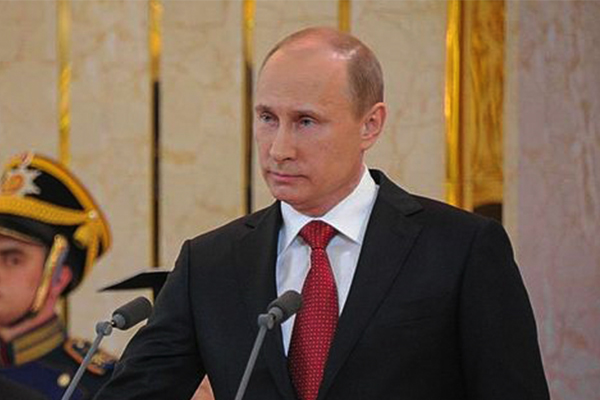Stephen Cohen was once considered a top Russia historian. Now he publishes odd defenses of Vladimir Putin, says critic

A few months ago, at the height of the Russian-Ukrainian conflict over Crimea, Stephen F. Cohen, professor emeritus of Russian studies and politics at New York University and Princeton, acquired a certain notoriety as the Kremlin’s No. 1 American apologist. As Cohen made Russia’s case and lamented the American media’s meanness to Vladimir Putin in print and on the airwaves, he was mocked as a “patsy” and a “dupe” everywhere from the conservative Free Beacon to the liberal New York and New Republic. Now, as the hostilities in eastern Ukraine have turned to the tragedy of Malaysia Airlines Flight 17, Cohen is at it again—this time, with a long article in the current issue of The Nationindicting “Kiev’s atrocities” in eastern Ukraine and America’s collusion therein. The timing is rather unfortunate for Cohen and The Nation, since the piece is also unabashedly sympathetic to the Russian-backed militants who appear responsible for the murder of 298 innocent civilians.
Some of Cohen’s critics have assumed that he is a lifelong leftist hack who simply transferred his allegiance from the Soviet Union to Putin’s Russia. The truth is more complex. While Cohen regularly argued against anti-Soviet hawks in the Cold War–era in his TV appearances and writing (including a monthly column in The Nation, “Sovieticus,” in the 1980s), he was no fan of the Soviet regime, which blacklisted him from travel there from 1982 to 1985. He had friends among Soviet dissidents—gravitating, however, toward those of the democratic socialist or even Marxist persuasion. Cohen’s own interest in “socialism with a human face” was reflected in his scholarly work: His first book, published in 1973, was a well-received biography of Nikolai Bukharin, the Bolshevik leader and victim of Stalin’s purges who at one point advocated a mixed economy and more humane politics.
In the late 1980s, Cohen was an ardent enthusiast of Mikhail Gorbachev’s perestroikareforms; he and his wife, Katrina vanden Heuvel, now editor in chief of The Nation, co-authored Voices of Glasnost: Interviews With Gorbachev’s Reformers, whose subjects—officials, journalists, and intellectuals—were all proponents of top-down change to bring about a kinder, gentler Soviet socialism. Those dreams ended in a rude awakening in 1991 with the demise of the Soviet Union.
The Soviet collapse is generally seen as the result of the system’s internal rot; Cohen, however, has blamed it on Boris Yeltsin’s power-grabbing, aided by the pro-Western “radical intelligentsia” that “hijacked Gorbachev’s gradualist reformation.” His antipathy to Yeltsin led him to sympathize with the views of those Russians who saw their country during the 1990s as “semi-occupied by foreigners—from shock-therapy economists to human-rights advocates,” and who credited Putin with taking it back. In Newsweek’s February 2008 roundup of expert opinions on Putin and his legacy, Cohen’s contribution—entitled “The Savior”—asserted Putin was the man who “ended Russia's collapse at home and re-asserted its independence abroad.” As U.S.-Russian relations worsened, Cohen grew increasingly strident in his denunciations of the “demonization” of Putin by the American media.
Cohen’s new article in The Nation hits a new low. The charge Cohen makes is a serious one: that the pro-Western Ukrainian government, aided and abetted by the Obama administration, the “new Cold War hawks” in Congress, and the craven American media, is committing “deeds that are rising to the level of war crimes, if they have not done so already.” He is referring to the Ukrainian military assaults on cities and towns held by pro-Russian insurgents, including artillery shelling and air attacks...